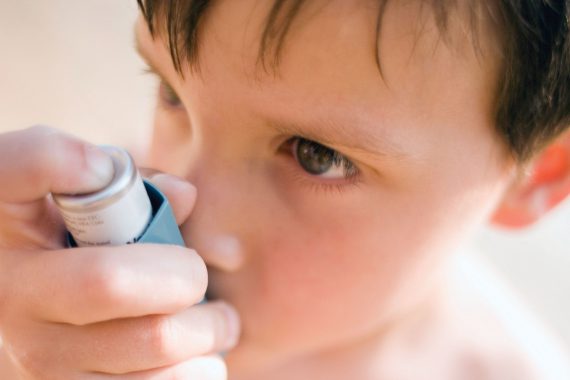GP caution urged as asthmatic children twice as likely to receive antibiotics

GPs must be careful about distinguishing asthma exacerbations from the symptoms of a bacterial infection in asthmatic children so as not to overprescribe antibiotics, a study has warned.
Children with asthma were almost twice as likely to be prescribed antibiotics than non-asthmatic children, suggesting that GPs may find it difficult to identify an infection versus an asthma exacerbation, according to a study conducted by researchers at Erasmus University in the Netherlands.
The study, which was presented this week at the European Respiratory Society International Congress looked at antibiotic prescription data for just under 2 million children from both the UK and the Netherlands, including 180,000 who had asthma. They found that children with asthma were about 1.6 times more likely to be prescribed antibiotics than children who did not have asthma.
They found that there were 374 prescriptions per 1000 children with asthma per year in the UK compared to 197 per 1,000 children with asthma in the Netherlands. Antibiotic prescription rates overall were about twice as high in the UK compared to the Netherlands, despite both countries following the same international guidelines for asthma treatment.
The researchers said that the results suggest that GPs may be confusing symptoms of an asthma exacerbation for symptoms of a bacterial infection, and that the study may indicate a wider problem of antibiotic overprescription for asthma in European countries.
Dr Esme Baan, one of the researchers, said: ‘It can be difficult for a GP to differentiate between a deterioration in asthma symptoms and a bacterial respiratory infection. We think this might be leading to more antibiotic prescriptions in children with asthma.
‘Of course, sometimes antibiotics are needed, but we should be careful and only prescribe them when they are really required. In general, we should discourage GPs from prescribing unnecessary antibiotics or run the risk of more drug-resistant infections in the future.’
Dr Samantha Walker, director of research and policy at Asthma UK, said: ‘Current guidelines… do not recommend automatically prescribing antibiotics after an asthma attack, but studies show that more than half of people who have asthma attacks are prescribed antibiotics anyway – either because it’s hard to tell the difference between a bacterial infection and asthma-related inflammation, or because patients have asked for antibiotics.
‘It is important that international guidelines on asthma treatment are followed to make sure people are put on the treatment most likely to benefit them and to prevent a rise in the number of drug resistant infections.’
Professor Nigel Mathers, RCGP honorary secretary, said: ‘The key thing is to ensure that children with asthma are receiving the appropriate dosage of steroids to manage their condition; often when asthma flares up it can mimic the symptoms of an infection, which makes it very difficult to diagnose.
‘Our advice is not to prescribe antibiotics to children with asthma, unless it is absolutely clear that the patient does have an infection that can be treated with the drugs. We have worked with Public Health England to develop the TARGET antibiotics toolkit to support GPs and other prescribing healthcare professionals to prescribe appropriately.
He added that ‘GPs recognise the wider global dangers of prescribing antibiotics inappropriately’ and are overall ‘doing an excellent job of reducing antibiotics prescriptions’.
But he added that ‘unfortunately, GPs can still come under a lot of pressure to prescribe antibiotics, particularly from worried parents who want a speedy solution when their child is sick’.
‘There is certainly need for more public awareness that antibiotics are not the best treatment for all conditions, and if bacteria build up resistance to antibiotics through using them inappropriately, then these important drugs might not work when they really do need them,’ he said.
BMA GP Committee prescribing lead Dr Andrew Green said GPs ‘all recognise the fact that children with asthma are more likely to receive antibiotics, even in an environment where we are trying to reduce their use’.
He added: ‘Dr Walker correctly identifies the reasons for this, a combination of understandable diagnostic uncertainty combined with parental expectations, to which I would also add a fear of criticism or legal action should an underlying serious infection be missed.’
It comes as on the whole, GPs in England reduced their antibiotic prescribing by 6% between 2012 and 2015, according to the latest Public Health England data.
Pulse July survey
Take our July 2025 survey to potentially win £1.000 worth of tokens

Visit Pulse Reference for details on 140 symptoms, including easily searchable symptoms and categories, offering you a free platform to check symptoms and receive potential diagnoses during consultations.










